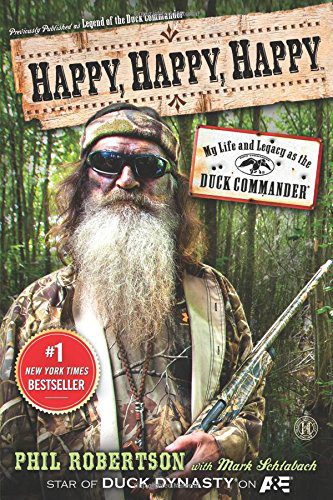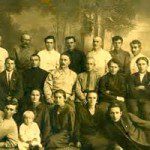
When I talk about recovering home economics, and especially the centrality of productive property to it, I get puzzled looks.
My first resort is to take people to the Bible, especially to Genesis, to show them how the command to cultivate the Garden is still in effect, and how the first household (you know, Adam and Eve) was established to do just that.
If that fails, I turn to reality television.
Some of the most popular “reality” shows actually illustrate biblical home economics very nicely, in my opinion.
I’m just going to look at three that I’m familiar with. Two of the shows are noteworthy because they make no claim to embody biblical ethics at all. To me that makes them even more useful because they demonstrate, to a degree, that biblical home economics really are universal and woven into the fabric of things.
I’m not a huge fan of these programs. I’ve just had a sampling of their programing. And I know the stuff is staged. But what I’m getting at doesn’t really have anything to do with the plot lines so much as the settings within which they are located. Those are real. They existed before the shows aired, and presumably, they will still be there when the shows end. (Unless the shows destroy them, that is.)
American Restoration
I’ll begin with my favorite. I like this one best because I like the nature of the business, restoring old stuff. It appeals to me at many levels, It’s on The History Channel.
Here we’re introduced to Rick Dale, the patriarch and owner of Rick’s Restorations, along with his wife, his two sons, and his brother.
For a little closer look at the business itself, Rick takes us on a tour of the shop.
Pawn Stars
Pawn Stars is better known than American Restoration, but American Restoration is actually a spin off of Pawn Stars. That tells a story in itself. Small, family run businesses tend to feed off of each other.
Pawn Stars is more about wheeling and dealing, but it is also about knowing your product and your market. It’s less hands on than American Restoration and demonstrates that productive property does not depend necessarily upon craft knowledge.
Another interesting feature to the program is it shows three generations working together: “The Old Man”, the founder of the business, Rick Harrison, his son, and “Big Hoss” Rick’s son, and heir apparent. Most shows deal with the mentoring that goes on between the generations. The Old Man is clearly the toughest negotiator. One of the things missing in the show is the women of the family. My guess, having been around many family run businesses, is they’re deeply involved with the operation nonetheless.
In case you’re not familiar with it, here’s the intro to the show.
Duck Dynasty
Of the three, this is the show that lays out the biblical ethic for a household economy. The patriarch and founder of the family business is Phil Robertson. (Both devout and not a man to mess with.) His brother and sons all work in the family concern and the wives and the grandchildren all play roles.
The one down side is, and this is big for me, the business–the productive property that keeps the family working together–is a mere backdrop to the antics and redneck silliness. While I’m sure that’s great for sales, it is misleading. If they didn’t have the property, they’d be like most extended families, living hither and yon and hardly seeing each other except on holidays.
Here’s the intro to the show.
Now, whether you like any of these shows or not doesn’t matter to me. What I’m interested in helping people see is that biblical home economics still works, and it is all around us. You probably know a household or two that resemble these in the ways that matter.
Here’s three things that you see in these households, and, generally speaking, household economics wherever they develop.
The Entrepreneur Patriarch
And nine times out of ten (more often in my experience) it is the patriarch who begins the business. His wife is always deeply involved and it is almost impossible to see where his interest ends and hers begins. These unions illustrate “one flesh” at a level most people miss these days.
The authority of the patriarch is not based solely on his position as father. It comes from his indispensable knowledge for the running the family concern. This is what has been lost in our day. Many fathers have been reduced to a second childhood at home because they do not bring to the household anything that depends exclusively upon them. A mother’s authority often depends upon the care she provides in the home. In most homes today, people aren’t sure what the father is for, that’s why many men opt for “mommy-second-class”. They attempt to be as nurturing as mothers.
Productive Property
I’ve said it before, I’ll say it again–a household must have productive property to work, otherwise a household is reduced to a center for consumption. It becomes a place where we watch television, surf the net, sleep, and maybe cut the grass.
Fuzzy Boundaries Between the Compartments of Life
A household economy integrates life. Where does faith end and work begin? (It doesn’t, the deepest commitments run through everything.) Where does education end and work begin? (It never stops, it runs through everything too.) Where does family harmony end and work begin? (It doesn’t, family harmony is essential to making a living.)
And these are just for starters. I’m sure you can think of more.
Next time I’ll get into those biblical roots for home economics.












